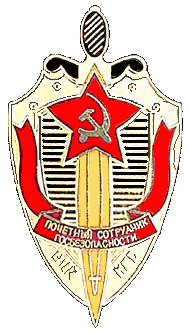





 Other Departments
Other Departments
The Technical Operations Directorate developed and produced devices used in KGB operations, such as incapacitating chemicals or poisons, though excluding communications equipment. The Technical Operations Directorate also provided Residencies with technical assistance, and technical support for clandestine activities inside the Soviet Union.
The Administration Directorate was responsible for managing property, arranging travel, and managing the stores, resorts, and apartment complexes of KGB personnel.
The Personnel Directorate, under the control of the Administrative Organs Department of the Party's Central Committee, was responsible for recruiting KGB personnel and their subsequent career management. It was also responsible for KGB schools, other than the specialized courses of the Illegals Directorate and Executive Action Department.
In addition to its Chief Directorates and Directorates, the KGB had six independent Departments.
The Special Investigations Department was responsible for investigation of treason or espionage and criminality by senior Party members or government officials.
The Department for Collation of Operational Experience was responsible for evaluating intelligence operations by Soviet and other intelligence agencies.
The Physical Security Department was responsible for guarding KGB facilities.
The Finance Department managed payroll, disbursements and accounting.
The Registry and Archives Department maintained a master index of the contents and physical location operational files and records maintained by each division of the KGB dating back to the days of the Cheka.
